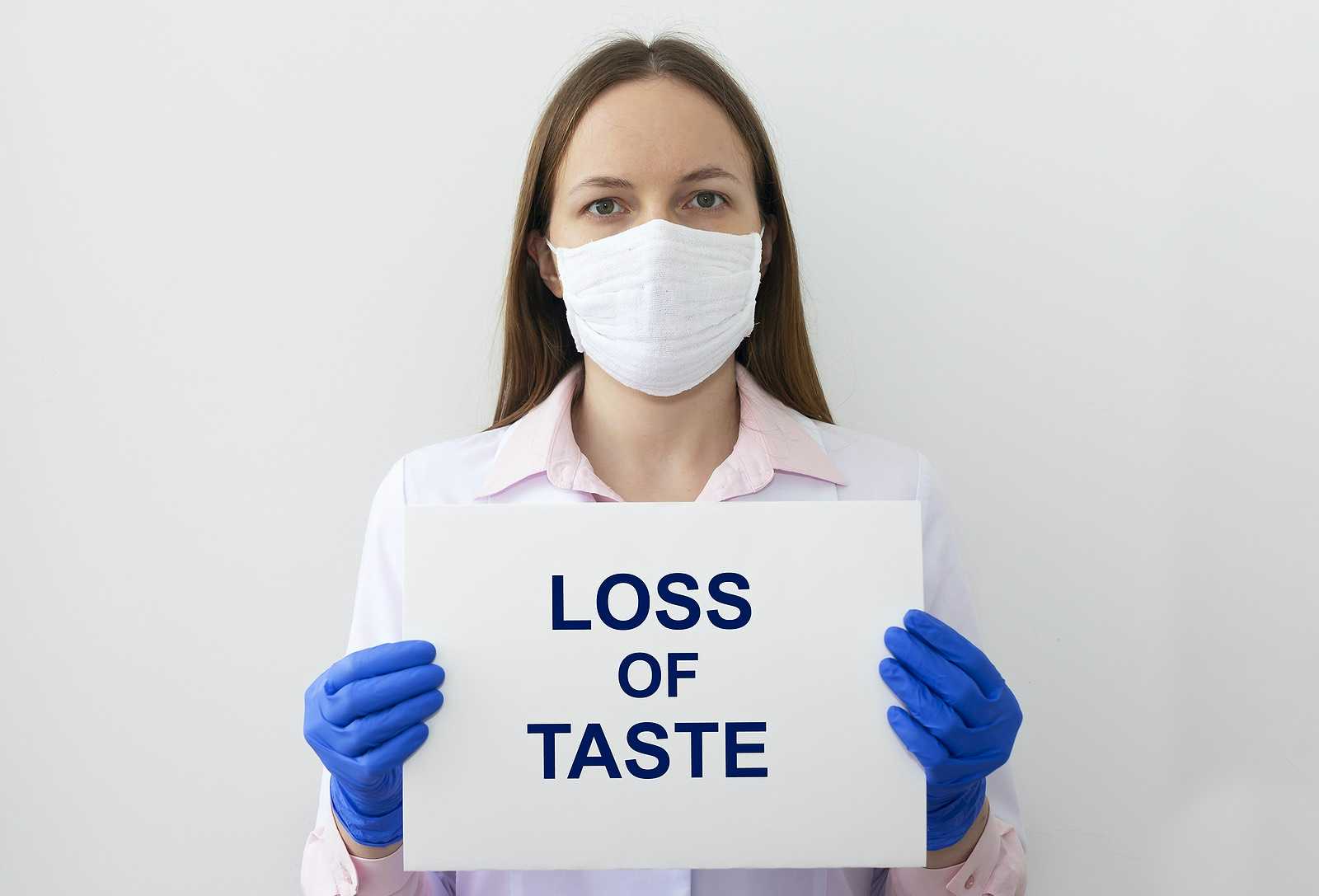
A study conducted in the US, the UK and Israel used data from digital platforms to analyze symptoms of COVID-19 (MedRxiv, Dec. 16, 2020). More than 10 million people participated in this research. Loss of the senses of smell and/or taste were the symptoms most consistent with positive COVID-19 tests. Anyone who finds they are suddenly unable to detect odors or flavors could be coming down with COVID-19. That person should be tested promptly for the SARS-CoV-2 virus.
The Results of the Symptom Study:
First, a quick translation from medicalese to English:
The loss of the sense of smell is called ANOSMIA. It comes from two Greek words: “an” loosely translate to mean “without” and “osmia” which translates to smell. So, anosmia is without smell.
The loss of the sense of taste is called AGUESIA.
This word also derives from the ancient Greek “guesis” or taste. Putting the “a” in front turns it into a negative or without taste.
Citizen Science to Tell If People Are Coming Down with COVID-19
The US, UK and Israeli study was unique in its methodology. It is described as “citizen science” and involved “digital participatory surveillance.” Over a period of four months (April 1, 2020 through July 31, 2020) the US Facebook COVID-19 Symptom Survey collected data. In the UK people used the COVID Symptom Study App. The Israel Corona Study relied on an online questionnaire. The tremendous advantage of this kind of research is that:
“data collection can be initiated rapidly and tailored to public health needs…”
In the US:
“Symptomatic respondents were additionally asked about SARS-CoV-2 test seeking, test access and test results.”
In the UK:
“App users are asked to report their health status everyday indicating their symptoms, if they experience any. In addition, they record their test results for COVID-19.”
In Israel:
“Survey responses were collected directly through the online platform. Responders were asked to report information on age, gender, geographic location, prior medical conditions and whether they are a healthcare worker as well as symptoms experienced in the prior 24-hours for themselves and for each member of the family.”
Here are the implications of the study:
“Here we show convincing evidence that anosmia/ageusia is robustly associated with self-reported SARS-CoV-2 test positivity, regardless of the surveillance platform, country, testing guidelines, or pandemic phase. Overall, anosmia/ageusia was an order of magnitude more common among those reporting positive (US 43%, UK 44%, Israel 13.9%) compared to negative (US 5%, UK 3%, Israel 0.17%). This finding supports test access and self-isolation mandates with anosmia/ageusia.”
Fever and respiratory symptoms were also important signals that people were coming down with COVID-19.
Other Symptoms of COVID-19:
Other early symptoms that might suggest someone is coming down with COVID-19 include cough, fatigue, chills, muscle pain, sore throat, runny nose, headache, shortness of breath, nausea, vomiting, diarrhea, chest pain or confusion.
Loss of Smell and Taste and the Brain:
The way you perceive taste or smell relies on nerve cell receptors in the mouth and nose. These receptors send signals to the brain. When the virus damages these cells, the brain cannot detect smell or taste.
Some people recover these senses after several weeks, but others suffer long-lasting deficits. Scientists don’t know whether the loss of smell or taste will ever return for these individuals. Loss of these senses has a profound impact on appetite and emotional well being.
There is also the possibility that the senses may become distorted. Instead of tasting something pleasant, such as strawberries, a person might sense a horrible flavor like dirt or spoiled meat. Instead of a pleasant odor such as chocolate or lavender, a person might smell dog poop or burning plastic.
The Bottom Line on Determining If You Are Coming Down with COVID-19:
Anyone who develops loss of taste and smell and has a fever, cough or other respiratory symptoms might be coming down with COVID-19. That person should be tested as soon as possible and contact health professionals for next steps. The sooner antibody treatment is started, the better it works.
If you found this information helpful and would like to share it with friends or family, please scroll to the top of the page and click on the icons for email, Facebook or Twitter. We appreciate your support. Share your own experience with COVID-19 symptoms in the comment section below.

